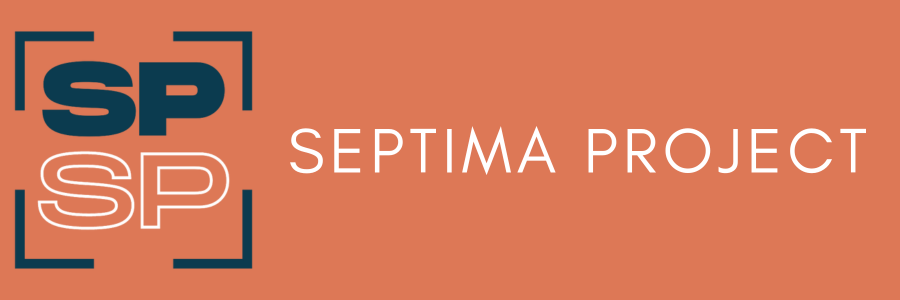How It Started…How It’s Going Pt. 1
Jun 2023
Septima Project co-founder Elizabeth Allin serving collective action and collective farming fashion from a very young age.
The Septima Project has been up and running since 2020, but we've been leading difficult conversations about antiracism, equity, and social justice for years. We’ve been doing this work as activists, organizers, facilitators, and educators long before it was called DEI, DEIB, REDI, JEDI, ESG or any other acronyms (and in case you were wondering, the only ESG we acknowledge made the timeless punk-funk classic “Moody”).
But we digress.
The thing is we’ve been bringing people together to grapple with tough questions and deepen their understanding of race in all sorts of spaces for a very long time. From anti-oppression workshops at schools to political education at riot grrrl meetings. At community dialogues for nonprofit leaders, in diversity trainings for staff, even on the dance floor as artists and performers.
Leading racial equity workshops and offering antiracism coaching is a natural extension of what we’ve already been doing. Helping people connect through dialogue. Creating spaces where people can build community. Teaching people how to take action and get smart on race and racism.
This work is deeply personal and meaningful for both of us. But what brought us to this work? How did we get smart on race and racism? What shaped our path and what fuels us to continue?
We each came to this work in different ways. And as we share in our antiracism workshops, reflection and self-examination are key to making real progress toward equity and allyship. We need to look closely at the ways race, inequality, and privilege shape our lives. We also need to figure out our north star and understand what drives our commitment to racial equity and racial justice.
With that in mind, we want to share our own stories and our journey to antiracism. First up, here’s Elizabeth’s story. Her path to this work winds through a diverse childhood in DC; seeing racism up close during a brief stint living in a rural community on the Eastern Shore of MD; discovering intersectionality as a young feminist; a career in research and linguistics; and speaking out about social justice issues as a musician and activist.
Here’s what else helped inform Elizabeth’s work’s as co-founder of the Septima Project:
I would never suggest I'm an expert on "how to be a good white person." No such person exists, at least not a white one. All of us do harm that we don't even know we're doing, because the reality of white supremacy is that it allows us to go through life, if we choose, without examining what it really means to be white and how whiteness affects others.
I've never been nervous to have conversations about race or difference. I was born and grew up in and around Washington, DC—when it was firmly Chocolate City. As a child, Marion Barry, Jim Vance, Jimmy Carter and Chuck Brown were some of the figures who loomed largest in my life. I attended a diverse Catholic school, and as I made my way there, alone across the city on public transport— the 70s and 80s were wild—the people I encountered were a mix of races and cultures.
In addition to being a predominantly Black city, DC is an international one and many of my friends were from other countries, cultures, and religions. We watched Free to be You and Me in the classroom and Sesame Street, Villa Allegra, and Sid & Marty Kroft when we got home. People who didn't look like me were all around me in real life and in the media, and when I got old enough to understand they weren't always treated the way I was, I became obsessed with why. Kids are obsessed with fairness and I was no different.
My career path has always been about researching, understanding and synthesizing information for others— in the service of fairness and access. In my personal life I've always sought genuine connection with people from all sorts of different backgrounds. Have I made social/cultural faux pas? Sure, but they don't make me shut down, they make me want to deepen my understanding and do better.
I want white people to feel that same way about understanding their whiteness; don't let mistakes discourage you from understanding the forces at work and the ways we can disrupt them. Commit to not taking things personally, so that you can commit to the work of change. I'm not afraid to have conversations about topics that might make others a little nervous and I want to help other white people get comfortable having them too.


